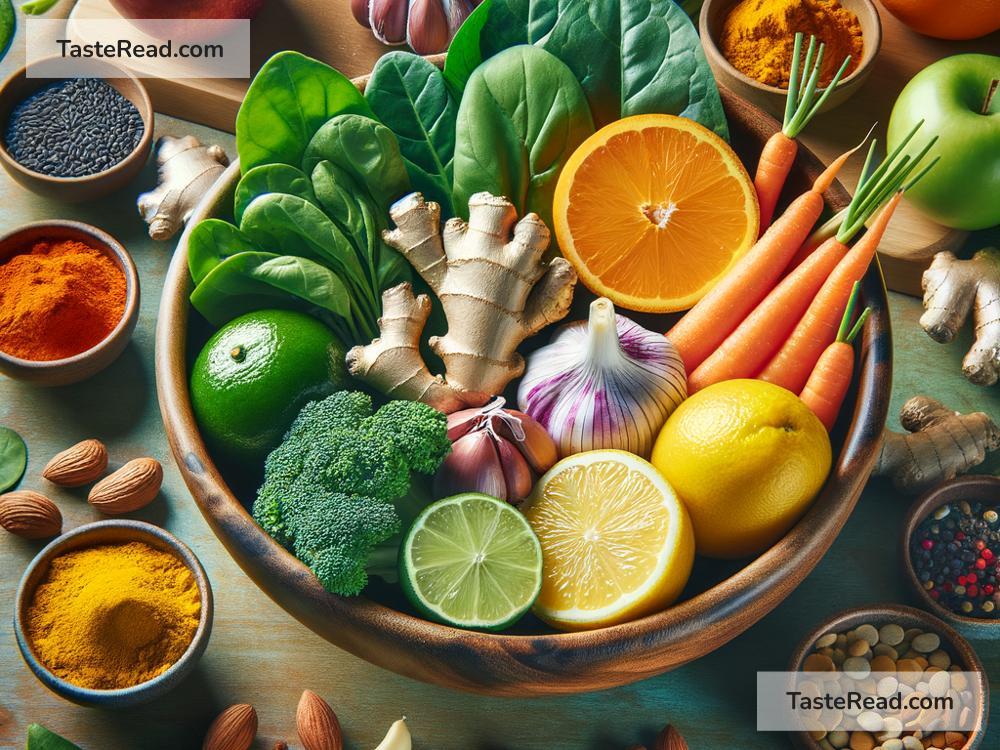Foods That Reduce the Risk of Swollen Lymph Nodes
Swollen lymph nodes, or “swollen glands,” happen when your body’s immune system is working hard to fight infections, toxins, or even stress. Your lymph nodes are small, bean-shaped structures that act like filters, trapping viruses, bacteria, and other harmful things. While swelling in these nodes might be a sign of an underlying issue, eating the right foods can help strengthen your immune system and reduce the chances of swollen lymph nodes getting worse.
In this article, we’ll explore foods that promote good lymphatic health while supporting your body’s overall system. The best part? These foods are delicious, nutritious, and easy to find!
What Causes Swollen Lymph Nodes?
Before diving into the foods, it’s important to understand why lymph nodes swell in the first place. Typically, swollen lymph nodes are a sign that your immune system is fighting off something. Common causes include:
- Infections like the flu, colds, or strep throat
- Viruses like mononucleosis or HIV
- Inflammatory conditions such as arthritis
- Stress that weakens immune function
- Serious health conditions, like cancer or autoimmune disorders
Damage to the lymphatic system or poor lifestyle choices can also affect how your lymph nodes function. Eating good, wholesome food is a great way to help your body keep inflammation down and heal faster.
Foods That Help Reduce Swollen Lymph Nodes
Let’s explore the foods that can help reduce the risk of swollen lymph nodes:
1. Citrus Fruits: Your Vitamin C Allies
Citrus fruits like oranges, lemons, grapefruits, and limes are packed with vitamin C — a nutrient that boosts immune health and helps your body fight infections. Vitamin C can lower inflammation and speed up recovery when your lymph nodes are swollen.
Other vitamin C-rich foods include strawberries, kiwis, and bell peppers. Having a daily dose of Vitamin C can keep your lymph nodes healthy by making your immune system stronger.
How to add this to your diet:
– Start your day with fresh orange juice or a vitamin C smoothie.
– Add lemon to your water or salad for a refreshing kick.
2. Garlic: A Natural Immune Booster
Garlic contains allicin, a powerful compound that fights harmful bacteria and viruses in the body. Eating garlic regularly can help prevent infections that might lead to swollen lymph nodes. Some studies have also shown that garlic improves the flow of lymphatic fluids.
How to add this to your diet:
– Use garlic in sauces, soups, and cooked vegetables.
– Consider raw garlic in salad dressings or on toast for added benefits.
3. Ginger: The Anti-Inflammatory Hero
Ginger is known for its anti-inflammatory properties, which can help reduce swelling and pain in lymph nodes. It also improves circulation, ensuring toxins are flushed from the body effectively. Ginger is particularly useful if your swollen lymph nodes are caused by a respiratory infection or cold.
How to add this to your diet:
– Brew ginger tea by boiling fresh ginger slices in hot water.
– Add grated ginger to stir-fries or soups.
4. Leafy Greens: The Detox Experts
Spinach, kale, arugula, and other leafy greens are loaded with vitamins, minerals, and antioxidants. These nutrients detoxify your body and reduce inflammation. Leafy greens also support the lymphatic system by helping it flush out toxins that might clog the lymph nodes.
How to add this to your diet:
– Blend leafy greens into a smoothie with fruits like bananas and berries.
– Cook spinach or kale as a side dish for lunch or dinner.
5. Turmeric: The Golden Spice for Healing
Turmeric is often called a superfood because of its curcumin content, which is a powerful anti-inflammatory agent. It can help reduce swelling in lymph nodes caused by inflammation or infections. Turmeric also enhances the body’s natural detoxification processes.
How to add this to your diet:
– Sprinkle turmeric powder in soups, curries, or rice dishes.
– Mix turmeric into warm milk for a soothing drink.
6. Nuts and Seeds: Packed with Healthy Fats
Nuts like almonds and walnuts, along with seeds like chia and flaxseeds, are rich in healthy omega-3 fatty acids. These fats reduce inflammation and support immune health. Omega-3s also improve blood circulation, which helps lymphatic fluids move smoothly through the body.
How to add this to your diet:
– Snack on a handful of raw nuts or seeds.
– Sprinkle chia seeds into smoothies, yogurt, or oatmeal.
7. Green Tea: Your Detox Drink
Green tea is rich in antioxidants that fight free radicals — molecules that can harm your cells and lead to inflammation. Drinking green tea can help flush toxins out of your system, calming down swollen lymph nodes.
How to add this to your diet:
– Sip fresh green tea throughout the day.
– Add honey for sweetness and extra antibacterial benefits.
Final Thoughts
While swollen lymph nodes are often temporary and not a major concern, eating immune-boosting and anti-inflammatory foods can go a long way in reducing the risk. By consistently including citrus fruits, garlic, ginger, leafy greens, turmeric, nuts, seeds, and green tea in your diet, you can support your lymphatic system and lower your chances of inflammation.
Remember, these foods are not magical cures, but they play an important role in keeping your immune system strong. If your swollen lymph nodes persist or cause pain, it’s essential to consult a doctor to rule out serious conditions.
Good nutrition is the foundation of good health. Take small steps to improve your diet, drink plenty of water, and stay active to keep your lymphatic system healthy!


